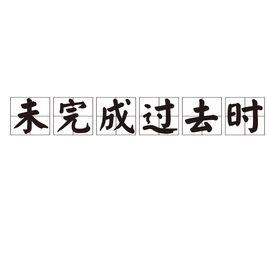未完成過去時
( l'imparfait )
用法
它的用法相當於英語中的 "was" 或是 "was ___-ing."
用法
1
表示習慣的動作或是某個狀態
Quand j'étais petit, nous allons à la plage chaque semaine.
When I was young, we used to go to the beach every week.
L'année dernière, je travaillais avec mon père.
I worked with my father last year.
2
用來描寫自然狀態或是情緒狀態,如:時間、氣候、年齡、感受
Il était midi et il faisait beau.
It was noon and the weather was nice.
Quand il avait 5 ans, il avait toujours faim.
When he was five, he was always hungry.
3
在一段不明起止的時間內的動作或狀態
Je faisais la queue parce que j'avais besoin de billets.
I stood in line because I needed tickets.
Il espérait te voir avant ton départ.
He was hoping to see you before you left.
4
與過去完成時( passé composé )連用,表示其動作發生的背景
J'étais au marché et j'ai acheté des pommes.
I was at the market and I bought some apples.
Il était à la banque quand il l'a trouvé.
He was at the bank when he found it.
5
表示願望或建議
Ah ! Si j'étais riche !
Oh, if only I were rich!
Si nous sortions ce soir ?
How about going out tonight?
6
用於 si 引導的條件句中
Si j'avais de l'argent, j'irais avec toi.
If I had some money, I would go with you.
S'il voulait venir, il trouverait le moyen.
If he wanted to come, he would find a way.
7
用於短語 être en train de 和 venir de 的過去時
J'étais en train de faire la vaisselle.
I was (in the process of) doing the dishes.
Il venait d'arriver.
He had just arrived.
變位形式
未完成過去時的變位
去掉現在式第一人稱複數( nous )的詞尾 -ons ,加上 -ais , -ais , -ait , -ions , iez , -aient
je -ais nous -ions
tu -ais vous -iez
il/elle/on -ait ils/elles -aient
唯一一個例外的動詞是 être ,它用詞根 ét- 開頭,但詞尾規律仍是這樣的。
例:
parler finir rendre aller être
je parlais finissais rendais allais étais
tu parlais finissais rendais allais étais
il parlait finissait rendait allait était
nous parlions finissions rendions allions étions
vous parliez finissiez rendiez alliez étiez
ils parlaient finissaient rendaient allaient étaient
注意
1 、以 -cer 和 -ger 結尾的動詞變位後寫法上有點特例
MANGER LANCER
je mangeais nous mangions je lançais nous lancions
tu mangeais vous mangiez tu lançais vous lanciez
il mangeait ils mangeaient il lançait ils lançaient
這樣做是為了發音上的便利。 g 和 c 後跟一個 a 的音要發濁音,若是在 g 後添加了一個 e ,或是變 c 為 ç 可以軟化發音,使之成為清音
2 、以 i 結尾的未完成過去時動詞詞根,在第一人稱複數( nous )和第二人稱複數( vous )變位時須要雙寫 i 。如:
étudier
nous étudions
未完成過去時詞根: étudi-
變位 ==>
j' étudiais nous étudiions
tu étudiais vous étudiiez
il étudiait ils étudiaient
Examens
1. il veut
2. nous allons
3. j'annonce
4. elles savent
5. tu as
6. vous riez
7. nous prenons
8. elle choisit
9. je dois
10. tu écris
11. nous sommes
12. vous parlez
13. ils boivent
14. on étudie
15. il cherche
16. tu vois
17. vous êtes
18. je peux
19. elles corrigent
20. nous dormons
Réponses
1. il voulait
2. nous allions
3. j'annonçais
4. elles savaient
5. tu avais
6. vous riiez
7. nous prenions
8. elle choisissait
9. je devais
10. tu écrivais
11. nous étions
12. vous parliez
13. ils buvaient
14. on étudiait
15. il cherchait
16. tu voyais
17. vous étiez
18. je pouvais
19. elles corrigeaient
20. nous dormions

